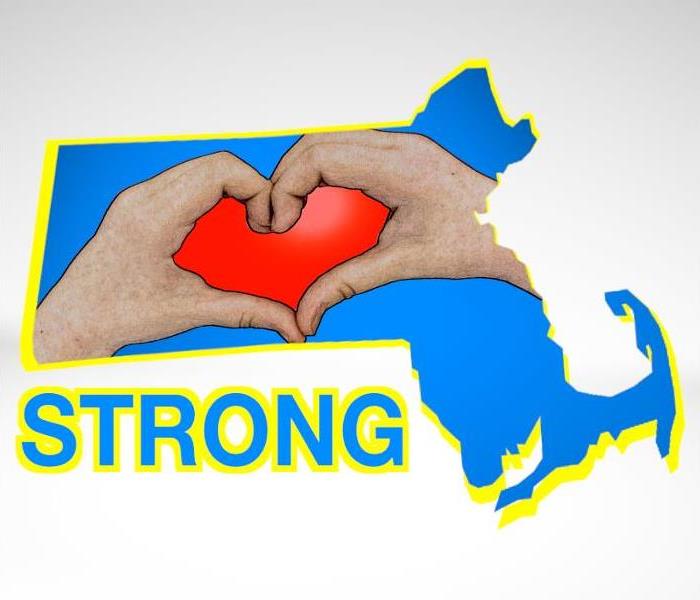Planning To Reopen - Updated MA Safety, Manufacturing Part 1 of 4
12/1/2020 (Permalink)
Lower risk Massachusetts communities have been permitted to move into Step II of Phase III of Governor Baker's reopening plan. The Commonwealth defines "Lower-risk communities" as cities and towns that have not been designated in the “red” category in any of the last three weekly Department of Public Health weekly reports. Click here to see the list of communities not designated as lower-risk communities.
To assist business owners we will be sharing highlights of the State's Updated Safety Standards and Reopening Guidelines for impacted sectors.NOTE: COVID-19 is highly transmissible. Individuals should follow these universal precautions regardless of the extent of mitigation needed:
- Follow healthy hygiene practices
- Stay at home when sick
- Practice social distancing
- Use a cloth face covering (with some exceptions) in community settings when physical distancing cannot be maintained.
The current state of the COVID-19 pandemic is continually evolving. What is true today may not be tomorrow. At this time, the evidence suggests schools have not played a significant role in COVID-19 transmission and that children, particularly younger children, are less likely than adults to be infected with COVID-19.
As always, work with your local health officials to determine a set of strategies appropriate for your community’s situation.
(See our Planning to Reopen series of blogs for more information regarding CDC, EPA, FDA, Mass EEA, Mass DESE, and OSHA safety requirements). To review the administration's reopening guidance from the state click here. To view Governor Baker's full report click here).
Manufacturing
These sector specific COVID-19 workplace safety standards, and in conjunction with the COVID-19 Order No. 53, for Manufacturing Activities are issued to provide owners and operators of manufacturing sites and workers and contractors with instructions to help protect against the spread of COVID-19. Employers are encouraged to have workers continue to telework if feasible. These standards are minimum requirements only and are not exclusive or exhaustive. The public health data and matrix for disease prevention upon which these guidelines are based can and does change frequently, and the operator of the manufacturing site is accountable for adhering to all local, state and federal requirements relative to manufacturing activities. The operator of the manufacturing site is also responsible for staying abreast of any updates to these requirements.
Standards For Responsible Manufacturing Activities In Massachusetts
No manufacturing activity shall occur without meeting the State mandatory Safety Standards for Workplaces as applied to manufacturing facilities in this document. These sector specific COVID-19 Workplace Safety Standards for Manufacturing apply to all manufacturing (essential and non-essential) in operation during the COVID-19 public health emergency until rescinded or amended by the State. The operator of each manufacturing site or facility shall be responsible for meeting these standards.
The following workplace specific safety standards are organized around four distinct categories covering Social Distancing, Hygiene Protocols, Staffing and Operations, and Cleaning and Disinfecting.
Hygiene Protocols
- Ensure access to handwashing facilities on site, including soap and running water, and allow sufficient break time for workers to wash hands to frequently; alcohol-based hand sanitizers with at least 60% alcohol may be used as an alternative
- Supply workers at workplace location with adequate cleaning products (e.g., sanitizer, disinfecting wipes)
- Require regular and not less than daily cleaning and sanitation of all high-touch areas such as workstations, door handles, and restrooms
- Post visible signage throughout the site to remind workers of the hygiene and safety protocols
- Avoid sharing materials / equipment (e.g., goggles) or disinfect equipment between use
Recommended Best Practices
- Frequently wash your hands with soap and water for at least 20 seconds. When soap and running water are unavailable, use an alcohol-based hand rub with at least 60% alcohol.
- Always wash hands that are visibly soiled.
- Avoid touching your eyes, nose, or mouth with unwashed hands.
- Practice good respiratory etiquette, including covering coughs and sneezes.
While the administration continues to work with communities to implement best practices and protocols for reopening our schools we will continue to share with you guidance from the CDC, EPA, FDA, Mass EEA, Mass EEC, Mass DESE, and OSHA and the Governor's office to follow as we prepare for the new school year.
Also, we at SERVPRO of Framingham know that not every community has access to the resources necessary to meet the strict cleaning guidelines to ensure a safe environment for our children. For those communities, we are here to help!
Certified: SERVPRO Cleaned
The Disaster Remediation Teams at SERVPRO of Framingham are specialists in cleaning services and we adhere to the highest cleaning and sanitation standards. We are prepared to clean and disinfect your schools, according to protocols set forth by the Centers for Disease Control and Prevention. We have years of experience in dealing with biological contaminants, and we will go beyond the scope of work of "normal daily cleaning". Call SERVPRO of Framingham today for a free consultation - (508) 370-4400.
All of us here at SERVPRO of Framingham want you and your loved ones to stay safe and know that we will make it through this together! Rest assured, we will continue to do our best to keep you up-to-date and informed!





 24/7 Emergency Service
24/7 Emergency Service
